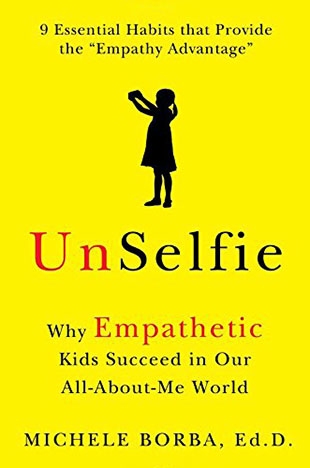Michelle Borba is an internationally renowned educational psychologist and an expert in parenting, bullying, and character development. She is the award-winning author of 22 books that have been translated into 14 languages. One of the foremost authorities on childhood development in the country, she is an NBC contributor who appears regularly on Today.
Selfies are pictures people take of themselves for sharing on social media. Michelle Borba calls this new self-absorbed craze "the Selfie Syndrome." It is all about "self-promotion, personal branding, and self-interest at the exclusion of others' feelings, needs, and concerns. It's permeating our culture and slowly eroding our children's character."
A life of meaning and purpose begins with empathy which can simply be defined as the ability to understand and share the feelings of another. Surveys show that both college students and teens are lower in empathy levels than those in that age group three decades ago. In addition, incidents of peer cruelty and bullying have risen in our times. For Borba, empathy is the antidote to both the Selfie Syndrome and the low ethical standards of this generation of youth. She also believes that empathy is the catalyst that can lead to a more meaningful life for children of all ages.
Using the latest research in child development, neuroscience, and social psychology, Bora presents the nine essential habits which form the core of empathy:
The first four are emotional literacy, moral identity, perspective taking, and moral imagination.
The second group are three habits that must be cultivated: self-regulation, practicing kindness, and collaboration.
The third group support living empathetically: moral courage and altruistic leadership abilities.
Borba's recommended habits are clearly explained. For example, she notes that developing emotional literacy and a moral identity are not easy given the epidemic of narcissism afoot in our culture, the over-praising of children by their parents, and the excesses of the self-esteem movement. The challenge is to enhance children's perspective-taking skills, moving the emphasis on self to the ability to step into another's shoes, to feel what another human being is going through, and to see the world as he or she sees it.
Borba never leaves any of her abstract ideas without down-to-earth exercises and practices for home, school, or religious communities. We were very pleased to see the author's affirmation and recommendation of the important role of kindness in the cultivation of empathy within youth. Our spirits were lifted by Borba's emphasis on respect, moral courage, and making a difference in the world.
